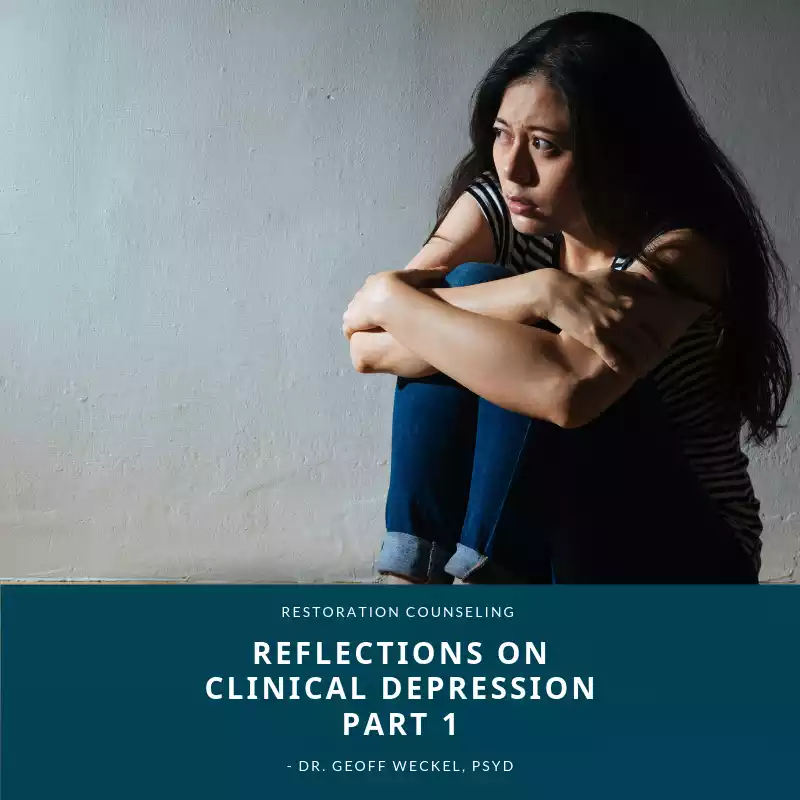
Reflections on Clinical Depression Impact, Part 1
Aaron Beck, the author of Cognitive Behavioral Therapy, described clinical depression as someone having consistent negative thoughts about oneself, the world, and the future. Beck referred to these three negative thoughts as the “cognitive triad.” According to Beck’s theory, a depressed individual will have a poor view of his or herself that leads to universal feelings of unworthiness that results in a consistent feeling of hopelessness about his or her future. As a result, the clinically depressed person falls into a cycle that perpetually feeds these negative views of self, the world, and the future. Lacking an ability to mitigate this distress, a depressed individual will fall into a defensive pattern of avoiding anything that might confirm his or her global fears and emotionally react when these perceived threats occur. It is as if a clinically depressed person wears distorted lenses that alter his or her perceptions; i.e., positive experiences are dismissed, neutral events are catastrophized, and negative situations are personalized.
Recent statistics on how many people struggle with clinical depression is astonishing. Approximately 20 percent of American women and 12 percent of American men will experience clinical depression in their life. It is estimated that 16 million people in the United States will experience clinical depression this year, and only half of them will seek professional help. Reading these statistics has me questioning how much clinical depression is costing us as a society.
In 2015, Paul Greenberg calculated that depression costs Americans $210 billon. Greenberg estimated, “For every dollar spent treating depression, an additional $4.70 is spent on direct and indirect costs of related illnesses, and another $1.90 is spent on a combination of reduced workplace productivity and the economic costs associated with suicide directly linked to depression (Scientific America, February 25, 2015).” The above figures suggest clinical depression is widespread and is costing Americans. Restoration has several skilled clinicians who have postgraduate training in treating clinical depression. If you are interested, please call us at Restoration to schedule an appointment.


